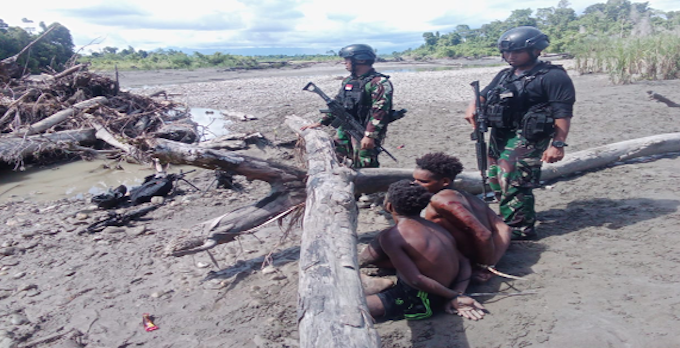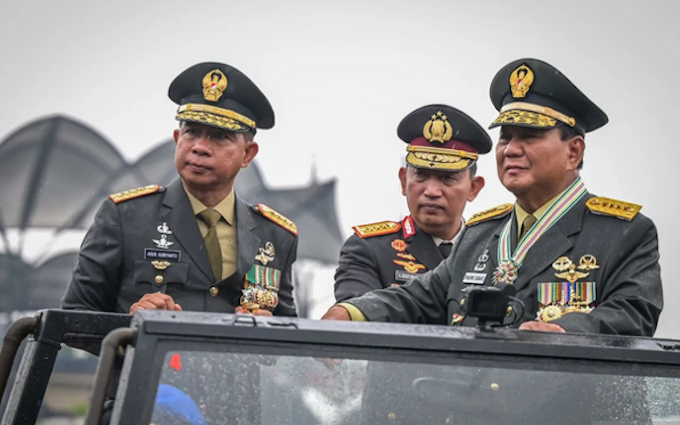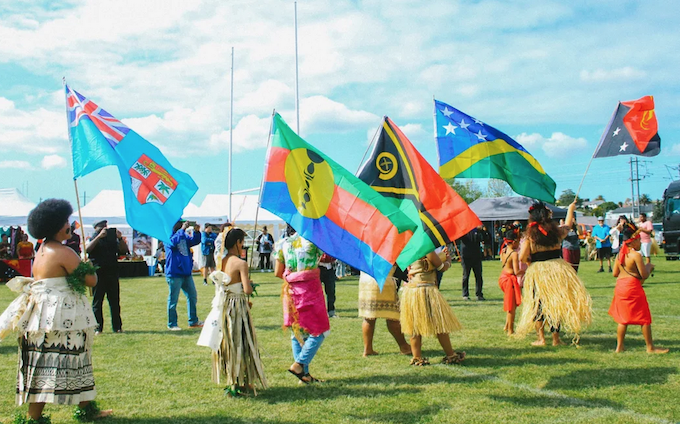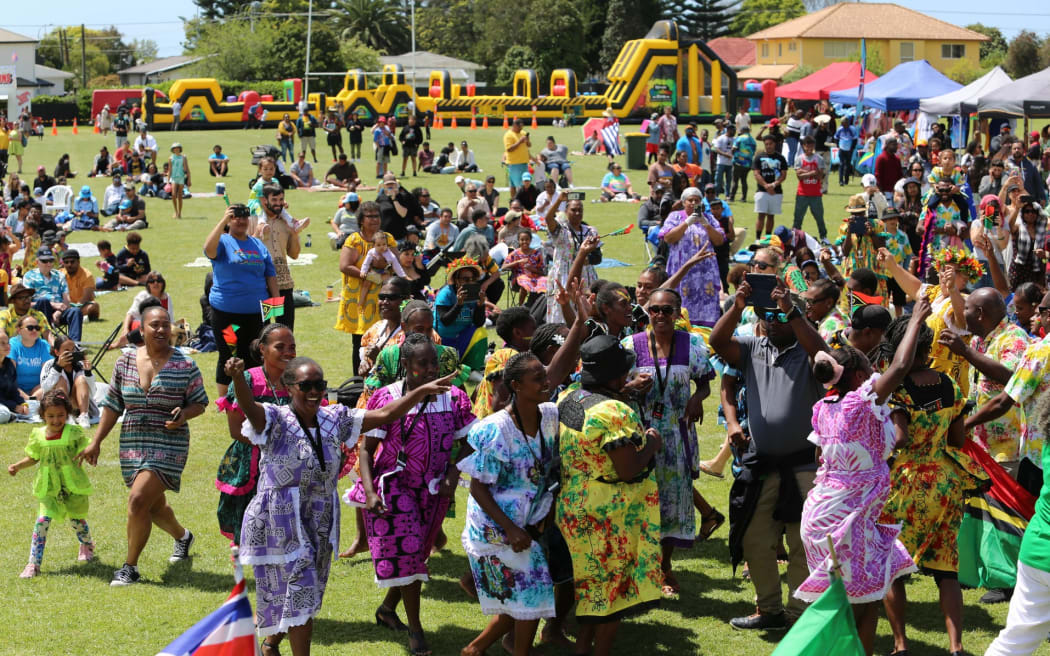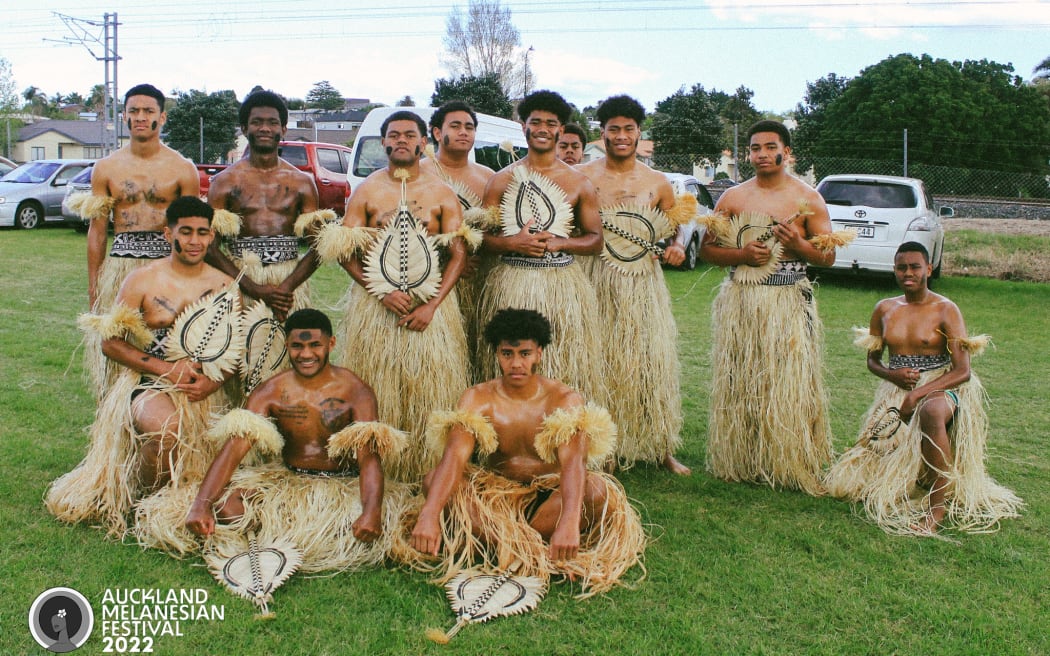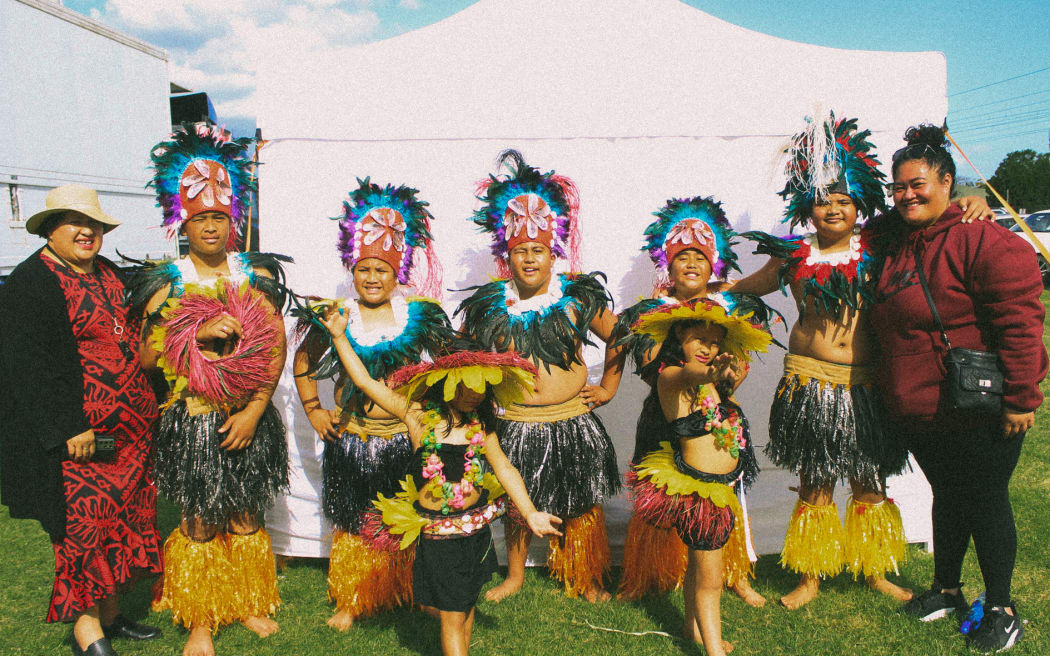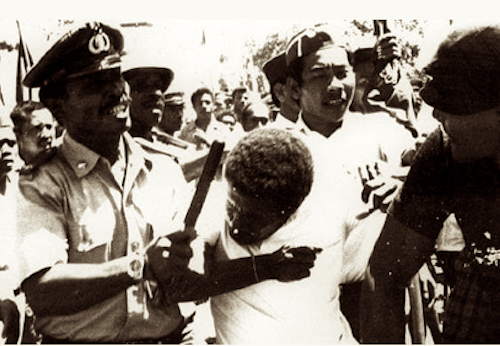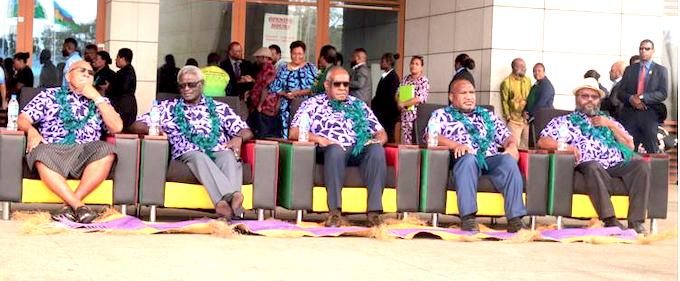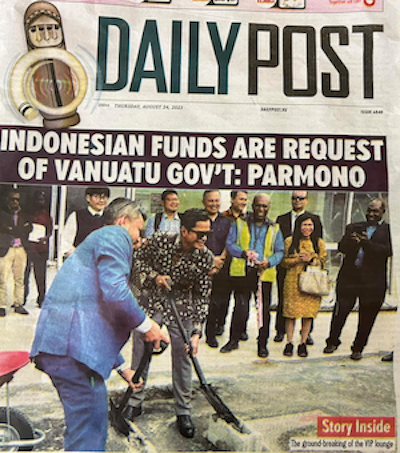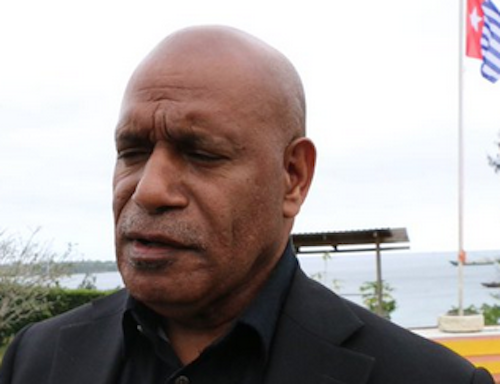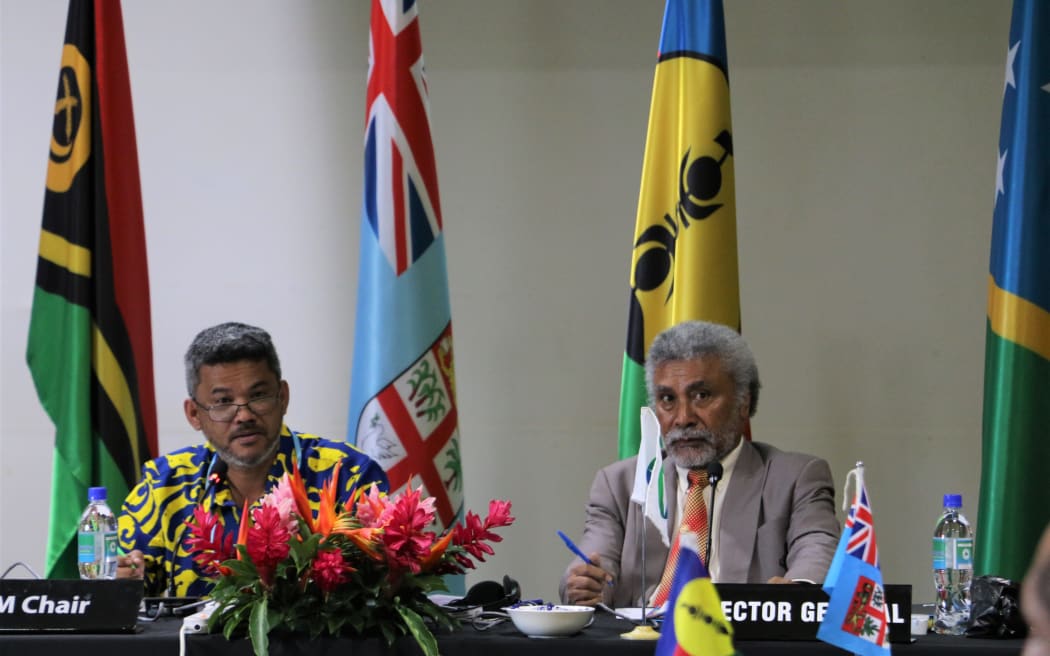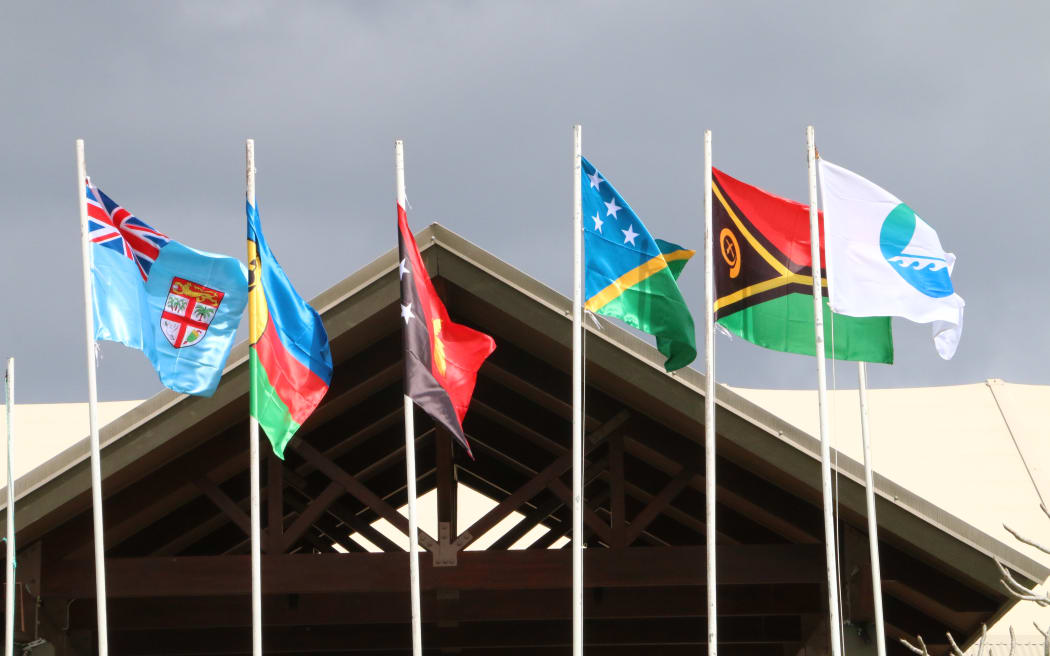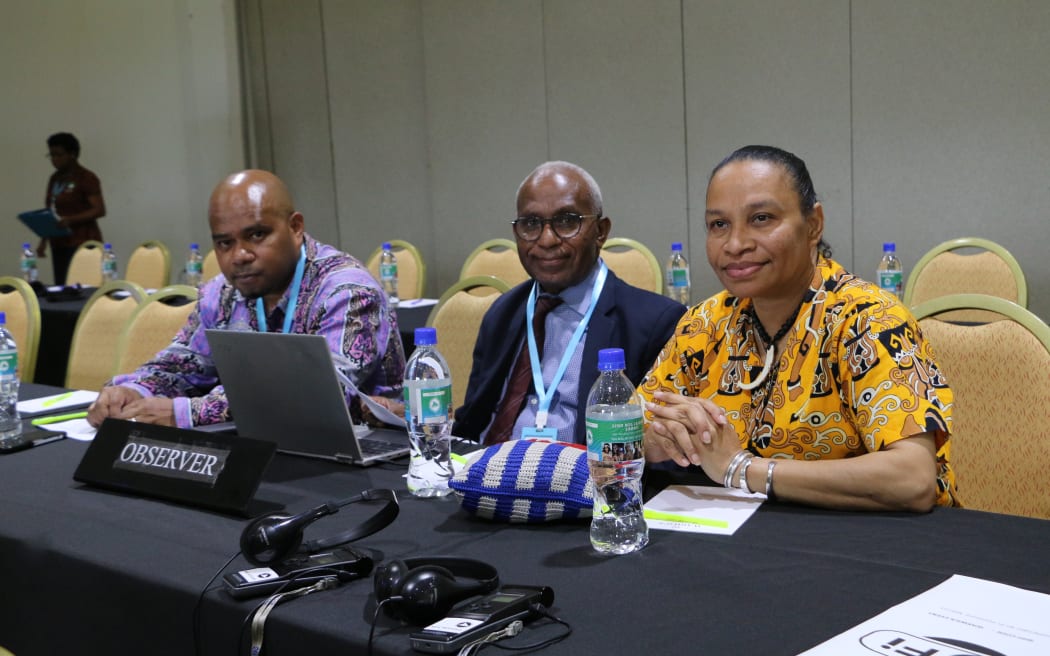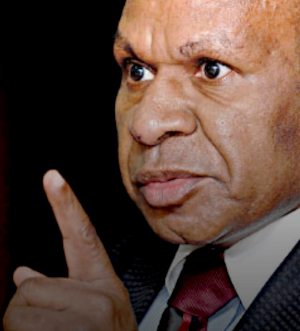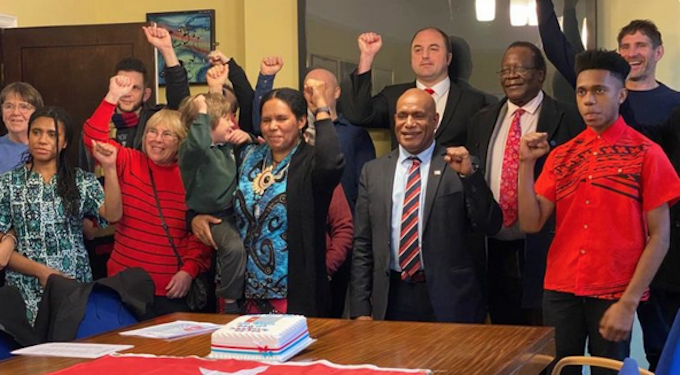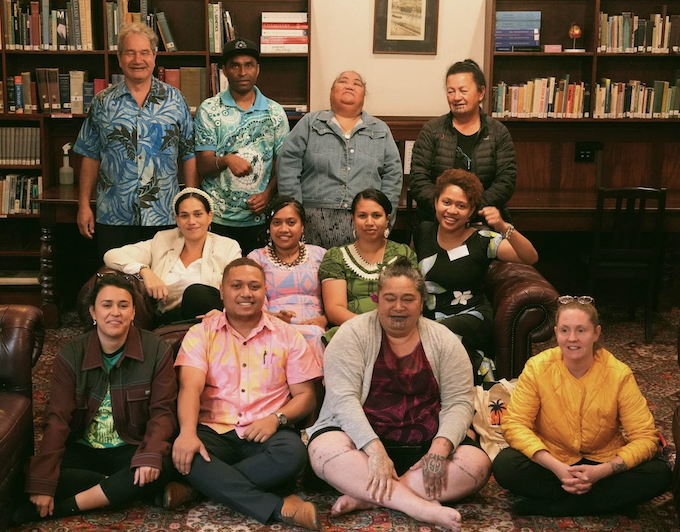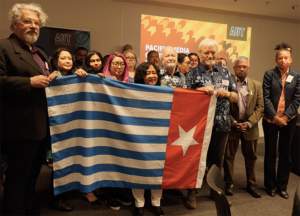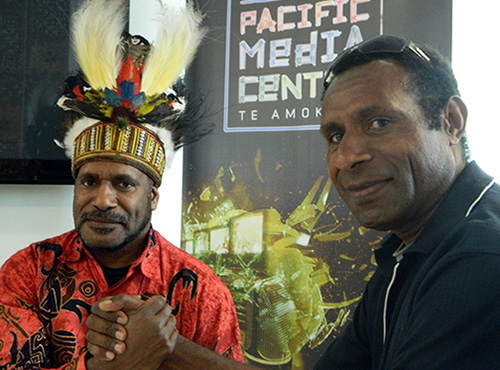SPECIAL REPORT: By Paul Gregoire
United Liberation Movement for West Papua (ULMWP) provisional government interim president Benny Wenda has warned that since Indonesian President Prabowo Subianto took office in October, he has been proven right in having remarked, after the politician’s last February election, that his coming marks the return of “the ghost of Suharto” — the brutal dictator who ruled over the nation for three decades.
Wenda, an exiled West Papuan leader, outlined in a December 16 statement that at that moment the Indonesian forces were carrying out ethnic cleansing in multiple regencies, as thousands of West Papuans were being forced out of their villages and into the bush by soldiers.
The entire regency of Oksop had been emptied, with more than 1200 West Papuans displaced since an escalation began in Nduga regency in 2018.
Prabowo coming to top office has a particular foreboding for the West Papuans, who have been occupied by Indonesia since 1963, as over his military career — which spanned from 1970 to 1998 and saw rise him to the position of general, as well as mainly serve in Kopassus (special forces) — the current president perpetrated multiple alleged atrocities across East Timor and West Papua.
According to Wenda, the incumbent Indonesian president can “never clean the blood from his hands for his crimes as a general in West Papua and East Timor”. He further makes clear that Prabowo’s acts since taking office reveal that he is set on “creating a new regime of brutality” in the country of his birth.
Enhancing the occupation
“Foreign governments should not be fooled by Prabowo’s PR campaign,” Wenda made certain in mid-December.
“He is desperately seeking international legitimacy through his international tour, empty environmental pledges and the amnesty offered to various prisoners, including 18 West Papuans and the remaining imprisoned members of the Bali Nine.”
Former Indonesian President Suharto ruled over the Southeast Asian nation with an iron fist from 1967 until 1998.
In the years prior to his officially taking office, General Suharto oversaw the mass murder of up to 1 million local Communists, he further rigged the 1969 referendum on self-determination for West Papua, so that it failed and he invaded East Timor in 1975.
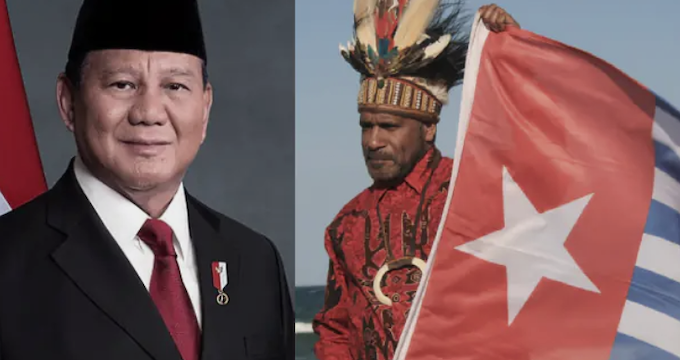
Wenda maintains that the proof Prabowo is something of an apparition of Suharto is that he has set about forging “mass displacement, increased militarisation” and “increased deforestation” in the Melanesian region of West Papua.
And he has further restarted the transmigration programme of the Suharto days, which involves Indonesians being moved to West Papua to populate the region.
As Wenda advised in 2015, the initial transmigration programme resulted in West Papuans, who made up 96 percent of the population in 1971, only comprising 49 percent of those living in their own homelands at that current time.
Wenda considers the “occupation was entering a new phase”, when former Indonesian president Joko Widodo split the region of West Papua into five provinces in mid-2022.
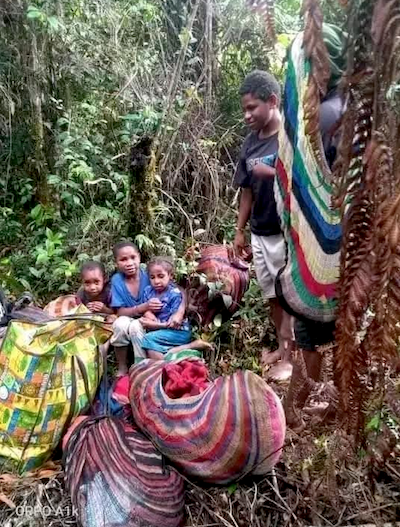
And the West Papuan leader advises that Prabowo is set to establish separate military commands in each province, which will provide “a new, more thorough and far-reaching system of occupation”.
West Papua was previously split into two regions, which the West Papuan people did not recognise, as these and the current five provinces are actually Indonesian administrative zones.
“By establishing new administrative divisions, Indonesia creates the pretext for new military posts and checkpoints,” Wenda underscores.
“The result is the deployment of thousands more soldiers, curfews, arbitrary arrests and human rights abuses. West Papua is under martial law.”
Ecocide on a formidable scale
Prabowo paid his first official visit to West Papua as President in November, visiting the Merauke district in South Papua province, which is the site of the world’s largest deforestation project, with clearing beginning in mid-2024, and it will eventually comprise of 2 million deforested hectares turned into giant sugarcane plantations, via the destruction of forests, wetlands and grasslands.
Five consortiums, including Indonesian and foreign companies, are involved in the project, with the first seedlings having been planted in July. And despite promises that the megaproject would not harm existing forests, these areas are being torn down regardless.
And part of this deforestation includes the razing of forest that had previously been declared protected by the government.
A similar programme was established in Merauke district in 2011, by Widodo’s predecessor President Susilo Bambang Yudhoyono, who established rice and sugarcane plantations in the region, aiming to turn it into a “future breadbasket for Indonesia”.
However, the plan was a failure, and the project was rather used as a cover to establish hazardous palm oil and pulpwood plantations.
“It is not a coincidence Prabowo has announced a new transmigration programme at the same time as their ecocidal deforestation regime intensifies,” Wenda said in a November 2024 statement. “These twin agendas represent the two sides of Indonesian colonialism in West Papua: exploitation and settlement.”
Wenda added that Jakarta is only interested in West Papuan land and resources, and in exchange, Indonesia has killed at least half a million West Papuans since 1963.
And while the occupying nation is funding other projects via the profits it has been making on West Papuan palm oil, gold and natural gas, the West Papuan provinces are the poorest in the Southeast Asian nation.
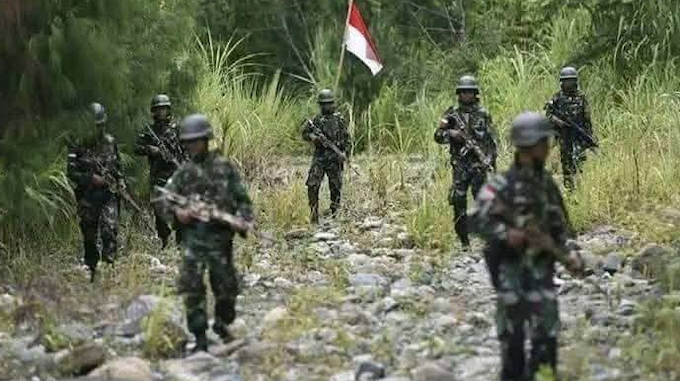
Independence is still key
The 1962 New York Agreement involved the Netherlands, West Papua’s former colonial rulers, signing over the region to Indonesia. A brief United Nations administrative period was to be followed by Jakarta assuming control of the region on 1 May 1963.
And part of the agreement was that West Papuans undertake the Act of Free Choice, or a 1969 referendum on self-determination.
So, if the West Papuans did not vote to become an autonomous nation, then Indonesian administration would continue.
However, the UN brokered referendum is now referred to as the Act of “No Choice”, as it only involved 1026 West Papuans, handpicked by Indonesia. And under threat of violence, all of these men voted to stick with their colonial oppressors.
Wenda presented The People’s Petition to the UN Human Rights High Commissioner in January 2019, which calls for a new internationally supervised vote on self-determination for the people of West Papua, and it included the signatures of 1.8 million West Papuans, or 70 percent of the Indigenous population.
The exiled West Papuan leader further announced the formation of the West Papua provisional government on 1 December 2020, which involved the establishment of entire departments of government with heads of staff appointed on the ground in the Melanesian province, and Wenda was also named the president of the body.
Indonesian president Prabowo Subianto has recommenced transmigration into West Papua, while embarking on the world’s largest deforestation project. #sydneycriminallawyers #indonesian #westpapuahttps://t.co/gTXg19eT2R
— SydneyCriminalLawyer (@sydcrimlawyers) January 4, 2025
But with the coming of Prabowo and the recent developments in West Papua, it appears the West Papuan struggle is about to intensify at the same time as the movement for independence becomes increasingly more prominent on the global stage.
“Every element of West Papua is being systematically destroyed: our land, our people, our Melanesian culture identity,” Wenda said in November, in response to the recommencement of Indonesia’s transmigration programme and the massive environment devastation in Merauke.
“This is why it is not enough to speak about the Act of No Choice in 1969: the violation of our self-determination is continuous, renewed with every new settlement programme, police crackdown, or ecocidal development.”
Paul Gregoire is a Sydney-based journalist and writer. He is the winner of the 2021 NSW Council for Civil Liberties Award For Excellence In Civil Liberties Journalism. Prior to Sydney Criminal Lawyers®, Paul wrote for VICE and was news editor at Sydney’s City Hub.
This post was originally published on Asia Pacific Report.
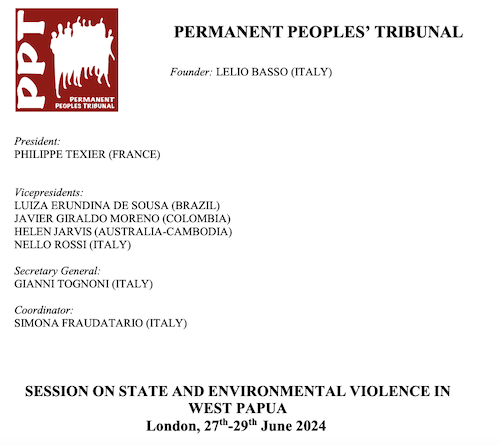
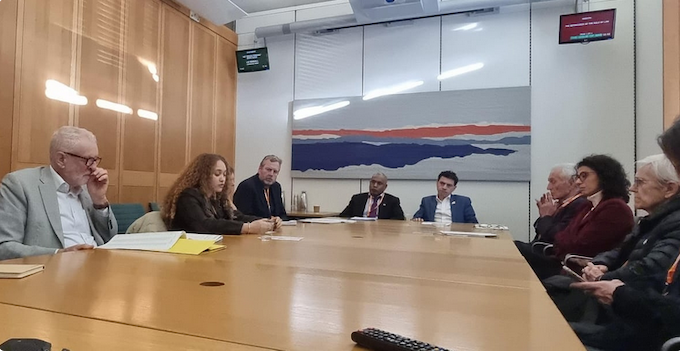


 (@uriohau)
(@uriohau) 